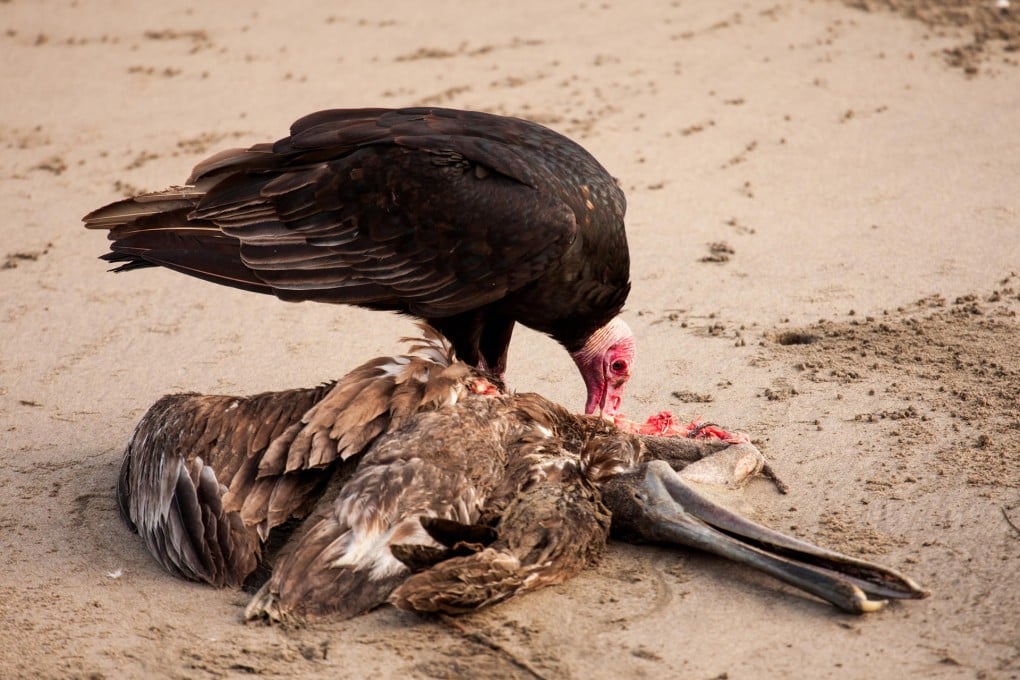Turkey vulture's gross habits let it avoid food poisoning: study
The turkey vulture is a wonder of nature. In a gross way. It urinates directly on its own legs. It frequently projectile vomits. Nearly every meal it eats would cause food poisoning in humans.

The turkey vulture is a wonder of nature. In a gross way.
It urinates directly on its own legs. It frequently projectile vomits. Nearly every meal it eats would cause food poisoning in humans. And if an animal's hide is too thick, it will tear into its food through a natural orifice - frequently the anus.
And now a new study suggests the microbial population of the vulture's gut is composed primarily of two bacteria, both of which are toxic to vertebrates.
"They are really neat birds, once you get all over the gross stuff," said Keith Bildstein, director of conservation science at Hawk Mountain in Kempton, Pennsylvania, US, , who was not involved in the study.
When a vulture encounters a dead deer, cow or bird, it is also encountering millions of bacteria that are busily secreting chemical poisons in the process of digesting the animal's remains, Bildstein explains. This is an effective strategy for the bacteria - it allows them to eat the animal and keep other organisms at bay that might also be interested in the meat.
But the vulture has developed several adaptations to circumvent the bacteria's best efforts. For example, the acid in a vulture's stomach is 10 to 100 times stronger than the acid in most vertebrates' stomachs. Scientists believe this helps vultures neutralise at least some of the toxins in the decaying meat.
Urinating on their legs may be another way that vultures protect themselves from their dicey dietary environment. The uric acid may act as an antiseptic, keeping the bacteria teeming in an animal carcass from entering any cuts or scratches on the vulture's legs.
